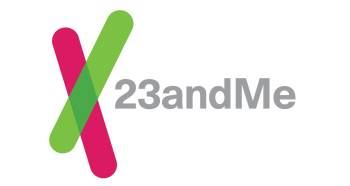
SUNNYVALE, Calif., Jan. 27, 2022 -- 23andMe Holding Co. (Nasdaq: ME) (“23andMe”), a leading consumer genetics and research company, announced today that it will report financial results for the fiscal year 2022 (FY2022) third quarter after the market closes on Thursday, February 10, 2022. The Company will webcast a conference call at 4:30 p.m. Eastern Time to discuss the quarter’s financial results and report on business progress.
The webcast can be accessed on the day of the event at https://investors.23andme.com/news-events/events-presentations. A webcast replay will be available at the same address for a limited time within 24 hours after the event.
In addition, 23andMe will use the Say Technologies platform to allow retail and institutional shareholders to submit and upvote questions to management. Starting today, shareholders can submit questions ahead of earnings by visiting https://app.saytechnologies.com/23andme-2022-q3. The Q&A platform will remain open until 24 hours before the earnings call.
About 23andMe
23andMe, headquartered in Sunnyvale, CA, is a leading consumer genetics and research company. Founded in 2006, the Company’s mission is to help people access, understand, and benefit from the human genome. 23andMe has pioneered direct access to genetic information as the only company with multiple FDA authorizations for genetic health risk reports. The Company has created the world’s largest crowdsourced platform for genetic research, with 80 percent of its customers electing to participate. The 23andMe research platform has generated more than 180 publications on the genetic underpinnings of a wide range of diseases, conditions, and traits. The platform also powers the 23andMe Therapeutics group, currently pursuing drug discovery programs rooted in human genetics across a spectrum of disease areas, including oncology, respiratory, and cardiovascular diseases, in addition to other therapeutic areas. More information is available at www.23andMe.com.
Forward-Looking Statements
This press release contains forward-looking statements within the meaning of Section 27A of the Securities Act of 1933, as amended, and Section 21E of the Securities Exchange Act of 1934, as amended, including statements regarding the future performance of 23andMe’s businesses in consumer genetics and therapeutics and the growth and potential of its proprietary research platform. All statements, other than statements of historical fact, included or incorporated in this press release, including statements regarding 23andMe’s strategy, financial position, funding for continued operations, cash reserves, projected costs, plans, and objectives of management, are forward-looking statements. The words "believes," "anticipates," "estimates," "plans," "expects," "intends," "may," "could," "should," "potential," "likely," "projects," "continue," "will," “schedule,” and "would" or, in each case, their negative or other variations or comparable terminology, are intended to identify forward-looking statements, although not all forward-looking statements contain these identifying words. These forward-looking statements are predictions based on 23andMe’s current expectations and projections about future events and various assumptions. 23andMe cannot guarantee that it will actually achieve the plans, intentions, or expectations disclosed in its forward-looking statements and you should not place undue reliance on 23andMe’s forward-looking statements. These forward-looking statements involve a number of risks, uncertainties (many of which are beyond the control of 23andMe), or other assumptions that may cause actual results or performance to be materially different from those expressed or implied by these forward-looking statements. The forward-looking statements contained herein are also 8-K filed with the Securities and Exchange Commission (“SEC”) on June 21, 2021 and in 23andMe’s Current Report on Form 10-Q filed with the SEC on November 10, 2021, as well as other filings made by 23andMe with the SEC from time to time. Investors are cautioned not to place undue reliance on any such forward-looking statements, which speak only as of the date they are made. Except as required by law, 23andMe does not undertake any obligation to update or revise any forward-looking statements whether as a result of new information, future events, or otherwise.
 Latest News Articles
Latest News Articles If you do not see a Plus Sign that is labeled "Add comment," you will need to upgrade to either a (FREE) Standard Edition or a (paid) Plus Edition subscription
If you do not see a Plus Sign that is labeled "Add comment," you will need to upgrade to either a (FREE) Standard Edition or a (paid) Plus Edition subscription